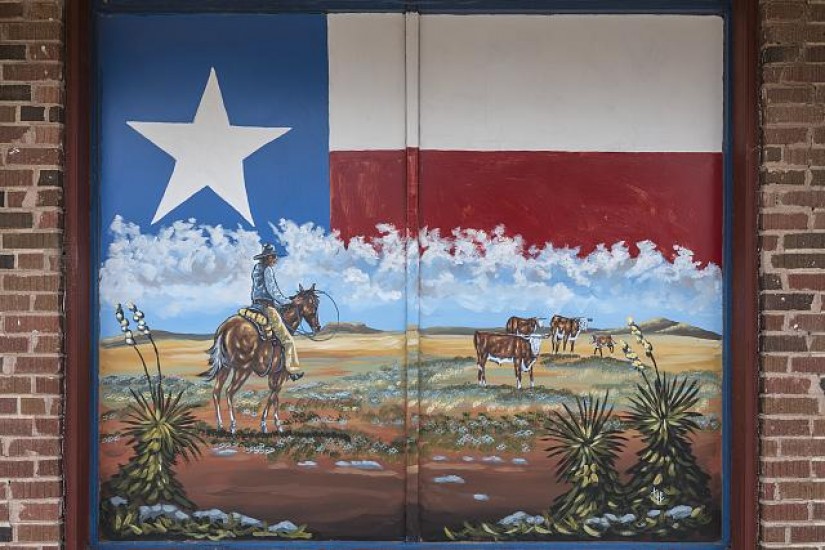There is ample reason to think of Texas as separate from the South, and to think of it as separate from the West, too. The Balcones Fault roughly bisects the state, creating a division between East and West. The vast majority of the population has always lived in the eastern part of Texas, a fact McMurtry acknowledges. That the less populous region of the state would come to define it is ironic and curious.
We all have family stories. Mine is of an enslaved great-great-grandmother brought to East Texas from Mississippi in the 1850s, before McMurtry’s family arrived in West Texas. Freed by her father as a child, along with her mother, she grew up to marry and raise a family, including my great-grandmother, who, with her husband, owned a cotton farm in East Texas. And then there was my father’s great-grandfather: he came out of slavery, and saved to buy a few hundred acres of land with his brothers. They became lumberjacks, cutting and selling timber to make a living. Cotton and timber: both have been integral to the economy and culture of Texas for most of the state’s history.
McMurtry does write of East Texas, saying that his family had always looked down on the people there because they were farmers. He also declares that area of his home state part of the South, and not really Texan. He invokes William Faulkner, whose writings show his grasp of the weight of history and his willingness to grapple with it:
It has clearly become necessary to write discursively of Texas if one is to be heard at all beyond one’s city limits. The South, fortunately for its writers, has always been dark and bloody ground, but Texas is only scenery, and poor scenery at that.
Well, the ground of Texas is pretty “dark and bloody” too, for the same reasons it was so in Faulkner’s Mississippi and for reasons unique to Texas. One of McMurtry’s own essays, “Southwestern Literature?,” describes in great detail the depredations of the Texas Rangers, who, after their beginnings in 1823, developed a reputation as expert killers of nonwhites. What would Texas literature look like if more of its writers had, over the years, mined this rich but tragic terrain instead of focusing on the blinkered mythology of the cowboy—a mythology that excluded the large numbers of cowboys who were black? In saying that his white and male family members “bespeak the region,” McMurtry, as have others before and since, pronounces Texas a white man. Many—certainly not all—people who read these essays fifty years ago would have seen no problem with such a pronouncement. It is likely that more would object today. The world has, indeed, changed.
